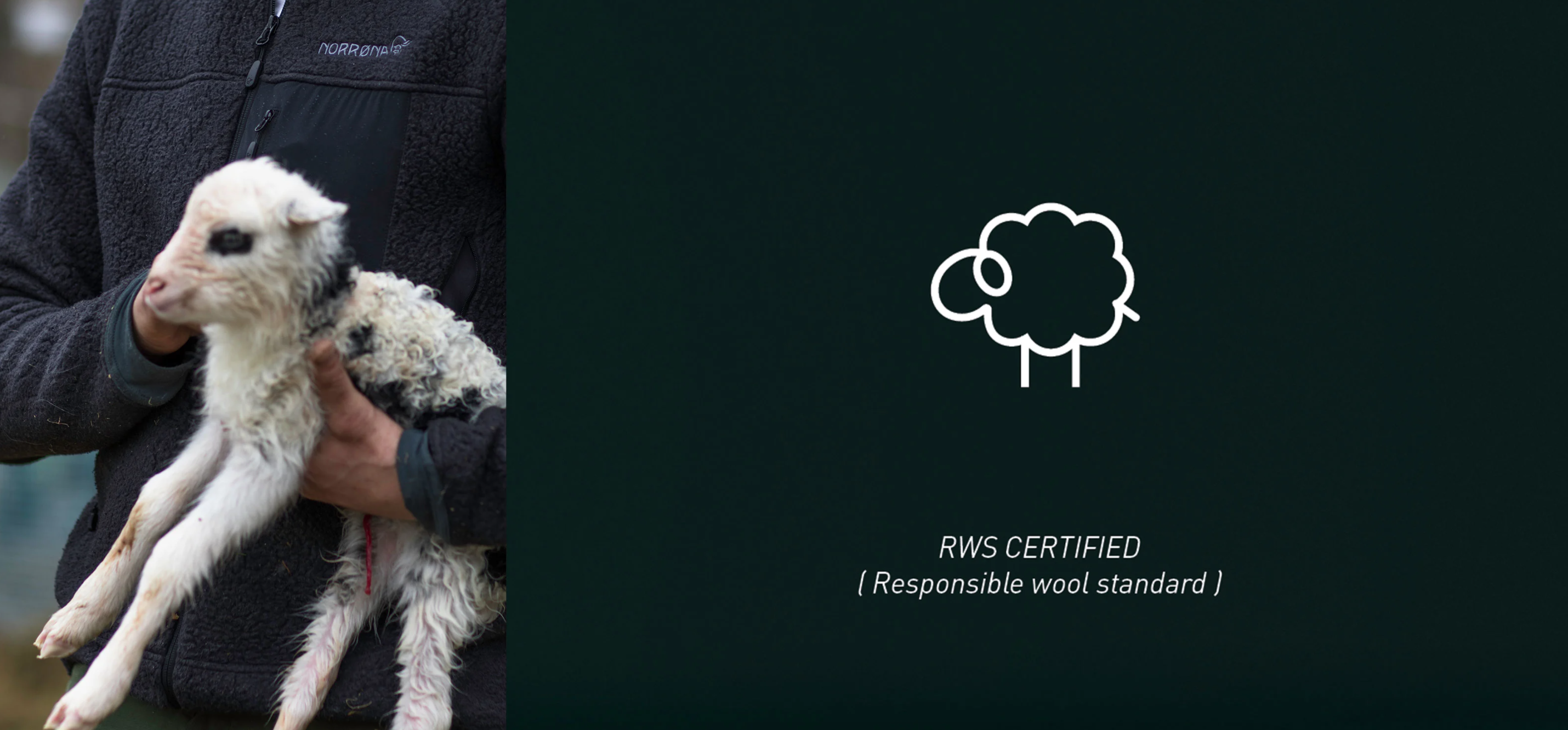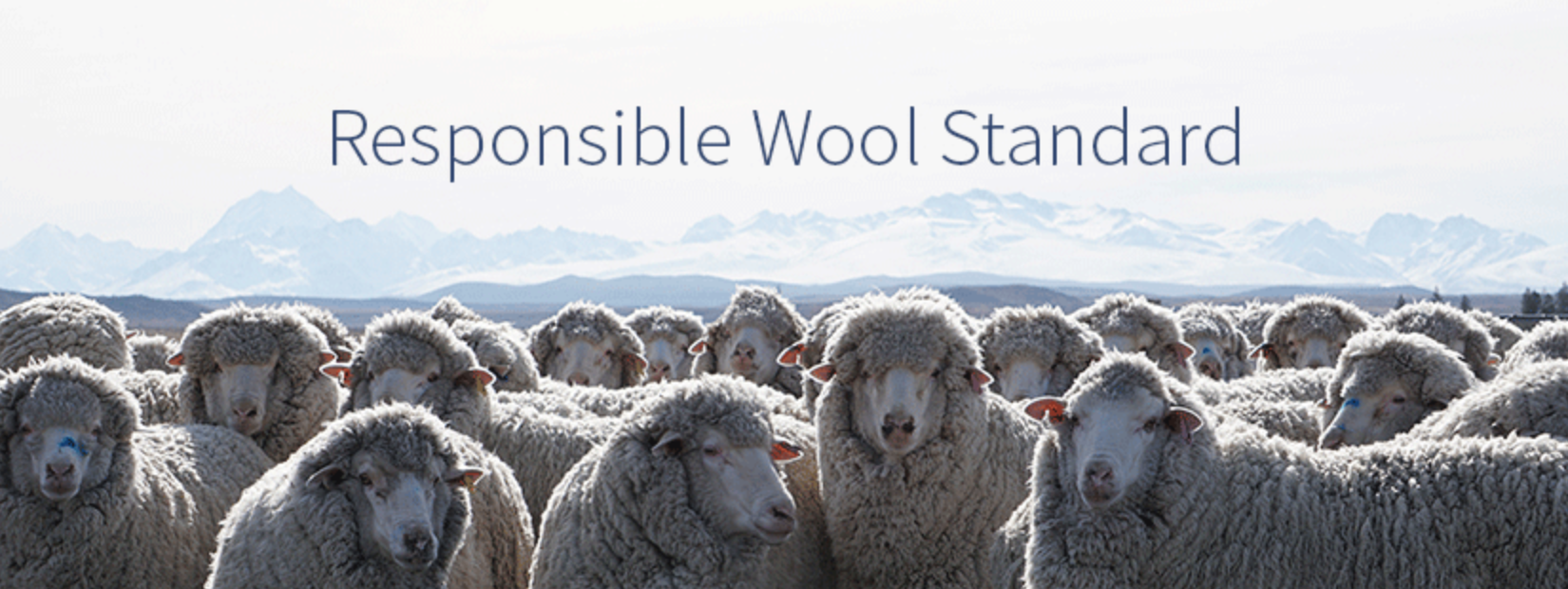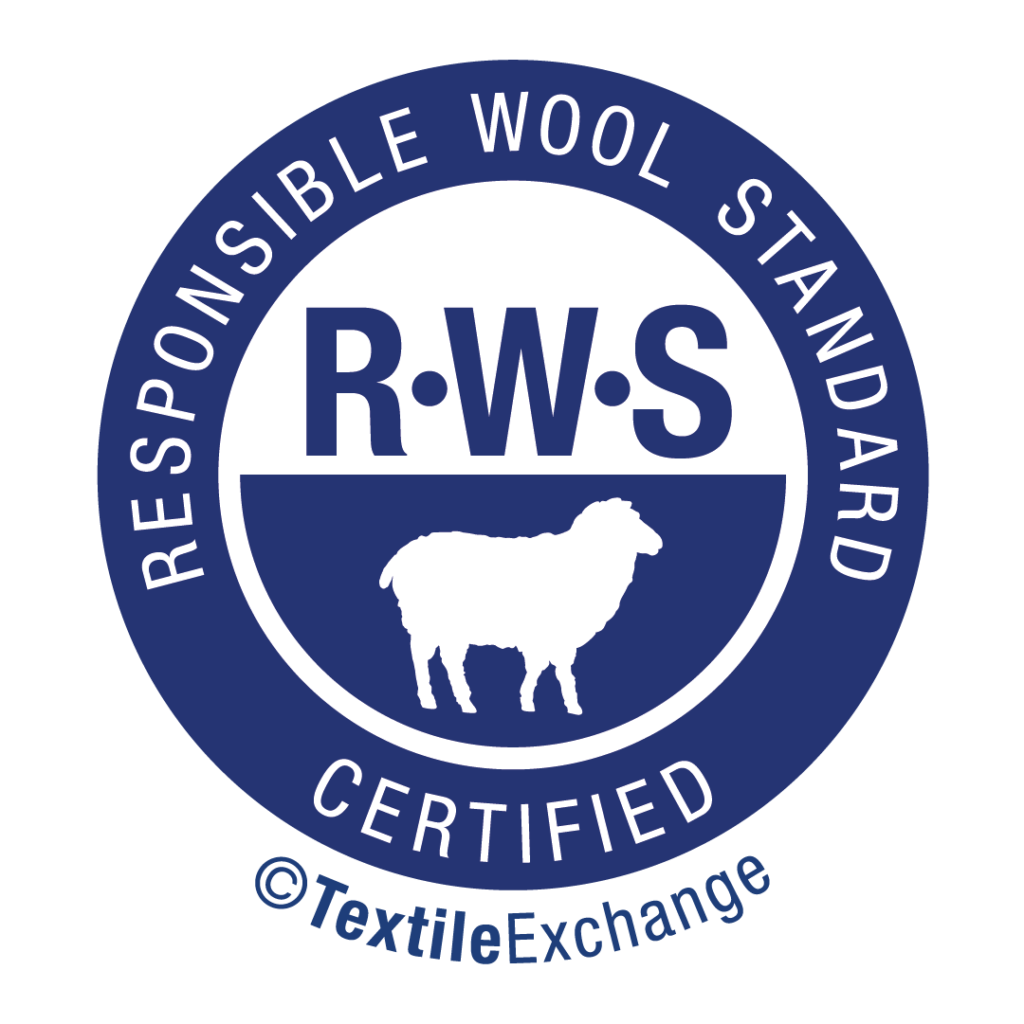

Fashion is an industry that long existed and relies heavily on the usage of wool. Global wool production is about 2million tons per year, of which 60% goes into apparel use. It comprises around 5% of global textile market in the world. And as eco-consciousness grows, consumers become more aware of where their clothing and raw materials come from. Brands and retailers are all beginning to ensure that the wool they use in their apparel lines, are sourced from wool suppliers that practice ethical and sustainable methods.
Who is RWS?
The responsible Wool Standard (RWS) is a voluntary, third-party program that facilitate sheep farmers meet all ethical demands from consumers, retailers and apparel brands. Harvesting wool from sheep is a labor and resource-intensive job. It requires great amount of land for sheep to grave, water to clean the fiber and chemicals to treat the wool. RWS’s standard regulates and certifies that all wool farmers meet rigorous animal welfare, land management and sanitary requirements. This globally available standard covers farm-level practices including handling of the sheep, nutrition, shearing process, medical treatments and sustainable grazing methods.
What are RWS requirement for certifications?
Land management
1. Soil health: Farmers must monitor soil compaction, erosion and organic matter.
2. Chemicals: Hazardous materials are forbidden to use on the land sheep graze on.
3. Biodiversity: Farmers must monitor invasive alien species of flora or fauna on the farm.
4. Ecosystem: Conversion of natural ecosystems to agriculture land is prohibited.
5. Fertilizer: Farmers must follow a fertilizer management strategy which is reviewed annually.
Five Freedoms of animal welfare
1. Freedom from hunger or thirst; Animals must always have access to clean water and a diet to maintain full health.
2. Freedom from discomfort; Animals must have an appropriate environment including shelter and a comfortable resting area.
3. Freedom from pain, injury, or disease; Animals must have health care like rapid diagnosis and treatment.
4. Freedom to express (most) normal behavior; Animals must have sufficient space, proper facilities, and company of animals of their own kind.
5. Freedom from fear and distress; Animals must be free of mental suffering and must receive treatments to avoid mental suffering.
The success of the RWS shows how cooperation among brands, retailers, processors and farmers can quickly change the sourcing landscape for the better. Many wool suppliers around the glove have participated in global training events with a focus on setting up a RWS supply chain. Outdoor brands like Patagonia, Eddie Bauer, REI, Vaude, Mountain Equipment Co-op, Deckers and Kathmandu have publicly made commitments to the Responsible Wool Standard. Furthermore, it also shows that farming methods can change to include best practices for animal welfare and land management, and that these farms are recognized and rewarded by the rest of the industry. By investing in RWS certified fabrics, companies and brands show their customers that they care about fair trade, sustainability, and the wellbeing of sheep all over the world. Let’s take small steps together towards a better world!

Reference:
1. Outdoor Brands Commit To Responsible Wool Standard
Written by Carly Terwilliger | Sep 28, 2016 | SGB Media
2. Textile Exchange
textileexchange.org
3. Nooteboom Textiles
nooteboomtextiles.com
